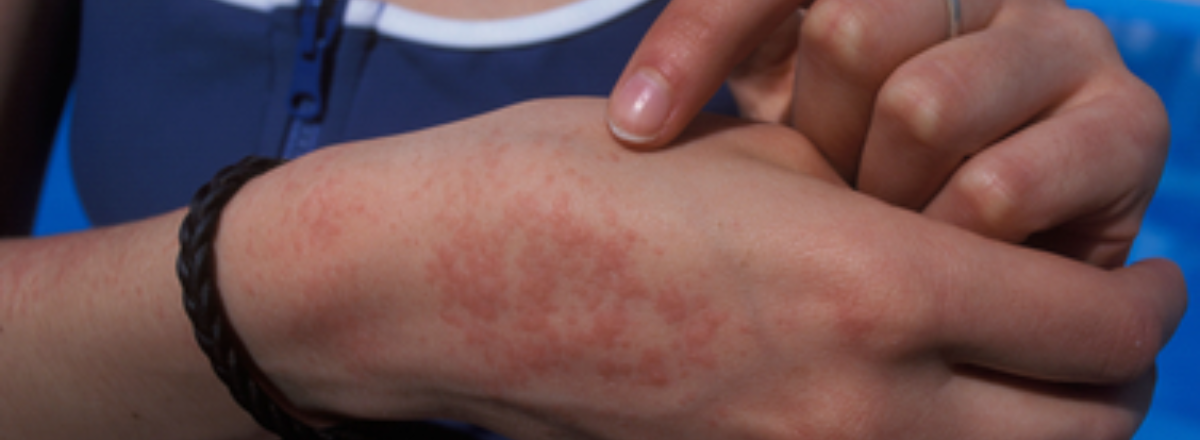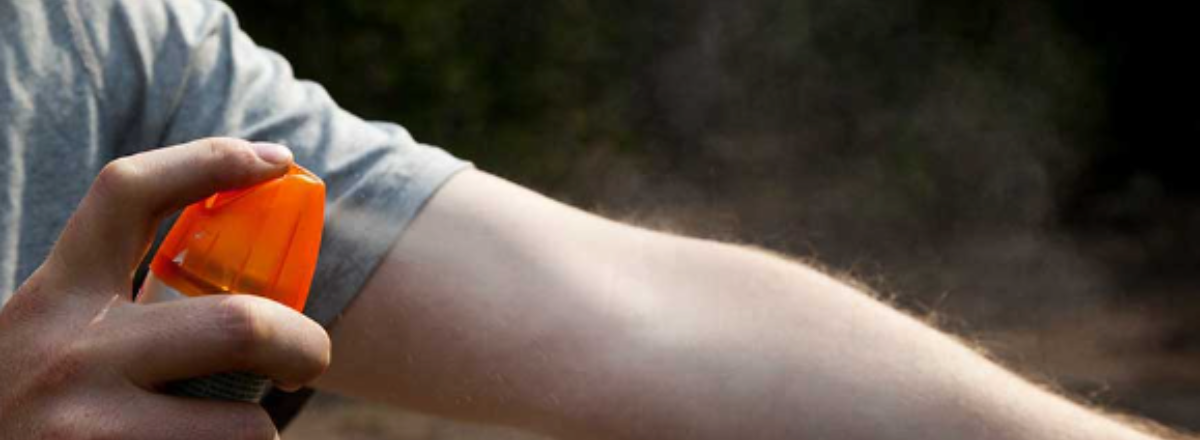There’s something about the sun shining, longer days and lighter evenings that instantly puts us in a better mood. But although we may feel happier and healthier, summertime isn’t without its health hazards, making a trip to the doctor inevitable.
‘Although it’s nice to have less patients coming to see our doctors about flus and other viruses and infections that tend to be more common in the winter months, summer still brings a whole host of sun and hot weather-related issues and concerns with it,’ says ZoomDoc Chief Medical Officer, Dr Kenny Livingstone.
From seasonal allergies to travel-related appointments, here are some of the most likely reasons you’ll need to see your GP this summer.
1. Hay fever’s driving you mad

Hay fever is usually worse between late March and September, especially when it’s warm, humid and windy
If you’re battling with hay fever and those over-the-counter medicines or sprays from your pharmacist just aren’t cutting it, you may need something stronger.
‘If hay fever is affecting your daily life, work or your sleep, book an appointment to see your doctor as you may need a prescription steroid treatment, such as a steroid nasal spray, to help manage symptoms,’ says Dr Kenny.
You may even need a referral for specialist treatment, such as immunotherapy. This can have a long waiting list so it’s worth seeing your doctor sooner rather than later. If you have private medical insurance, you may simply need to see your GP for a referral letter. Alternatively – and to avoid a trip to the doctor – you can order a ‘GP Referral’ letter online via ZoomDoc for just £35 and it’ll arrive in your inbox the same day.
Read more about hay fever, including top tips for managing symptoms.
2. Your asthma gets worse

Asthma is a common lung condition that causes occasional breathing difficulties.It affects people of all ages.
Over the summer, temperature changes, humidity and high pollen levels can trigger asthma symptoms for some sufferers.
If yours flares up at this time of year, Asthma+Lung UK recommends having regular asthma reviews to check you’re on the right medication for you – and you’re using your inhalers correctly.
It adds that ‘if you’re using your reliever inhaler three or more times a week, or you’ve noticed the hot weather’s made your symptoms worse, book an extra catch-up with your doctor or asthma nurse.’
If your child has asthma, it’s particularly important to stay on top of their asthma over the summer holidays, say health experts.
‘The change of routine can mean asthma meds get forgotten about or neglected when they’re off school or on holiday. Not only does this mean they don’t have their inhaler to hand when they need it, but it can also make asthma attacks more likely once they’re back at school,’ says Dr Kenny.
Stay on top of your asthma this summer and make sure you contact your doctor with any questions or concerns related to flare ups, attacks or medication usage.
3. You need travel vaccinations

Travelling outside the UK, you may need to be vaccinated against some of the serious diseases found in other parts of the world.
If you’re jetting off somewhere exotic you may need specific vaccines to protect you from diseases in other countries, such as hepatitis, typhoid and yellow fever. To find out what you need, visit the NHS’s Fit For Travel page.
Then simply book in for your jabs at your GP practice or travel clinic. It’s worth knowing that not all vaccines will be free on the NHS. You also need to have them at least 6 to 8 weeks before you’re due to travel. Some vaccines need to be given well in advance to allow your body to develop immunity.
While you’re at it, check if you’re up to date with your routine vaccinations and talk to your GP about catching up on any you might have missed.
Get a doctor-signed medical VISA certificate today
4. You’re pregnant and flying
If you’re expecting a baby and have booked a summer holiday abroad, you may need a ‘fit to fly’ letter for the airline. Although it’s safe to fly until 37 weeks (or 32 weeks for twins, or more) you’ll need to travel with a letter that proves your due date once you reach 28 weeks, or earlier for multiples.
Your GP can provide you with this but you may need to pay for the service. To save yourself an appointment, and another trip to collect it later on in the week, you can order yourself a ‘Pregnancy Fit To Fly’ letter that will arrive the same day, via ZoomDoc, for just £40.
Order your ‘Pregnancy Fit To Fly’ letter here.
5. A mole is bothering you

Moles are small, coloured spots on the skin. They’re usually nothing to worry about unless they change size, shape or colour.
Once the weather warms up, we all start paying a bit more attention to our skin thanks to wearing fewer clothes, or slathering it in SPF. And it could just save your life.
Although we should all be checking moles all year round, if you do notice anything unusual on your skin, get it checked out.
‘Your GP will have seen hundreds of unusual moles before so if in doubt, ask them about anything that’s concerning you, especially if it has a ragged edge or has changed in shape or colour since you last checked it,’ says Dr Kenny.
In the meantime, make sure you wear daily SPF, stay out of the sun during the hottest time of the day (11am-3pm) and make that appointment. The sooner you get a mole checked, removed and treated, if required, the better.
6. You’ve had too much sun

Avoid getting caught out by sunburn. Use shade, clothing and a sunscreen with an SPF of at least 30 to protect yourself.
As fun as the sun can seem, it’s incredibly dangerous – especially when we don’t see it all that often, here in the UK. But spending too long in the sun can cause a number of unpleasant conditions, such as sunburn, heat exhaustion and sunstroke – all of which can be painful and even deadly.
Signs you’ve had too much sun can include:
- tiredness
- dizziness
- headache
- feeling sick or being sick
- fast breathing or heartbeat
- a high temperature
Always stay in the shade for the hottest part of the day, protect your head by wearing a hat and stay hydrated to avoid dehydration. Sunstroke can be both unpleasant and dangerous.
‘If someone’s had too much sun exposure and their symptoms get worse, for instance, despite trying to cool down they’re getting hotter or lose consciousness, they’ll need to get to a hospital for treatment,’ says Dr Kenny.
7. Your skin feels prickly

Heat rash is uncomfortable, but usually harmless. It usually gets better on its own after a few days.
If you’ve broken out into a rash this summer and don’t feel unwell with it, it’s most likely to be caused by heat or sweat. Heat rashes, also known as prickly heat, are harmless but can just look or feel unpleasant.
‘The best thing to do is to ask your pharmacist for an over-the-counter soothing remedy, an antihistamine or some hydrocortisone cream to calm it down,’ says Dr Kenny.
If it doesn’t respond or gets worse, particularly in babies, see your doctor about it, just to make sure it’s prickly heat and nothing else.
8. You’ve been bitten or stung
Most insect bites can be easily treated at home or via your pharmacist’s advice. But if they get infected, you may need to see the doctor for an antibiotic cream.
A more unusual bite to be aware of over the summer is a tick bite. If you’ve been outdoors, especially where there’s long grass or in woodlands, it’s possible to be bitten by a tiny tick without even realising. Some ticks can spread something called Lyme disease, which can make you feel quite unwell if not treated quickly.
If you notice a bullseye rash – a red dot with a red ring around it, or suspect you’ve been bitten by a tick, tell your doctor as soon as possible so they can treat it with appropriate antibiotics.
Read more about Lyme disease and removing ticks here.
Whatever the season, you can always call ZoomDoc with any health concerns, questions or medication needs. Download the app and talk to a GP from your own home at a time that suits you!


